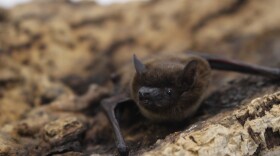-
Health and environmental advocates vow to fight it in court
-
An "evening bat" was found with an injured wing. The species mostly lives in the southeast and central parts of the U.S.
-
As large solar projects become more common across the Mountain West, questions remain about their environmental footprint, especially in fragile desert ecosystems. New research from Nevada suggests that with careful planning, renewable energy development and rare native plants may be able to coexist.
-
Colorado Parks and Wildlife says the bald eagle had a ball bearing in its wing when they found it near Croke Reservoir.
-
The state wildlife action plan is required every ten years to receive federal funding for conservation efforts.
-
Federal land managers are reopening their environmental review of a massive transmission line proposed across Nevada, a move conservation groups say could reshape how energy infrastructure is approved on public lands across the West.
-
The numbers are fueling the debate about whether grizzlies should remain protected under the Endangered Species Act.
-
A 2023 Supreme Court ruling, along with new interpretations from the Trump administration, have limited protections for rivers and wetlands. Colorado is looking to fill in that gap with its own regulatory program.
-
A new study in the Rocky Mountains has found a steep drop in the number of young American pikas — small, high-altitude mammals known for their distinctive squeaks and rock-pile homes. Researchers say the 50% decline could be an early sign of deeper ecological shifts as the climate warms.
-
The leaves are down, the trees are bare, and there’s less light every day. That’s why KUNC commentator Peter Moore is firing up his lawnmower, and preparing for spring.

Play Live Radio
Next Up:
0:00
0:00
Available On Air Stations










